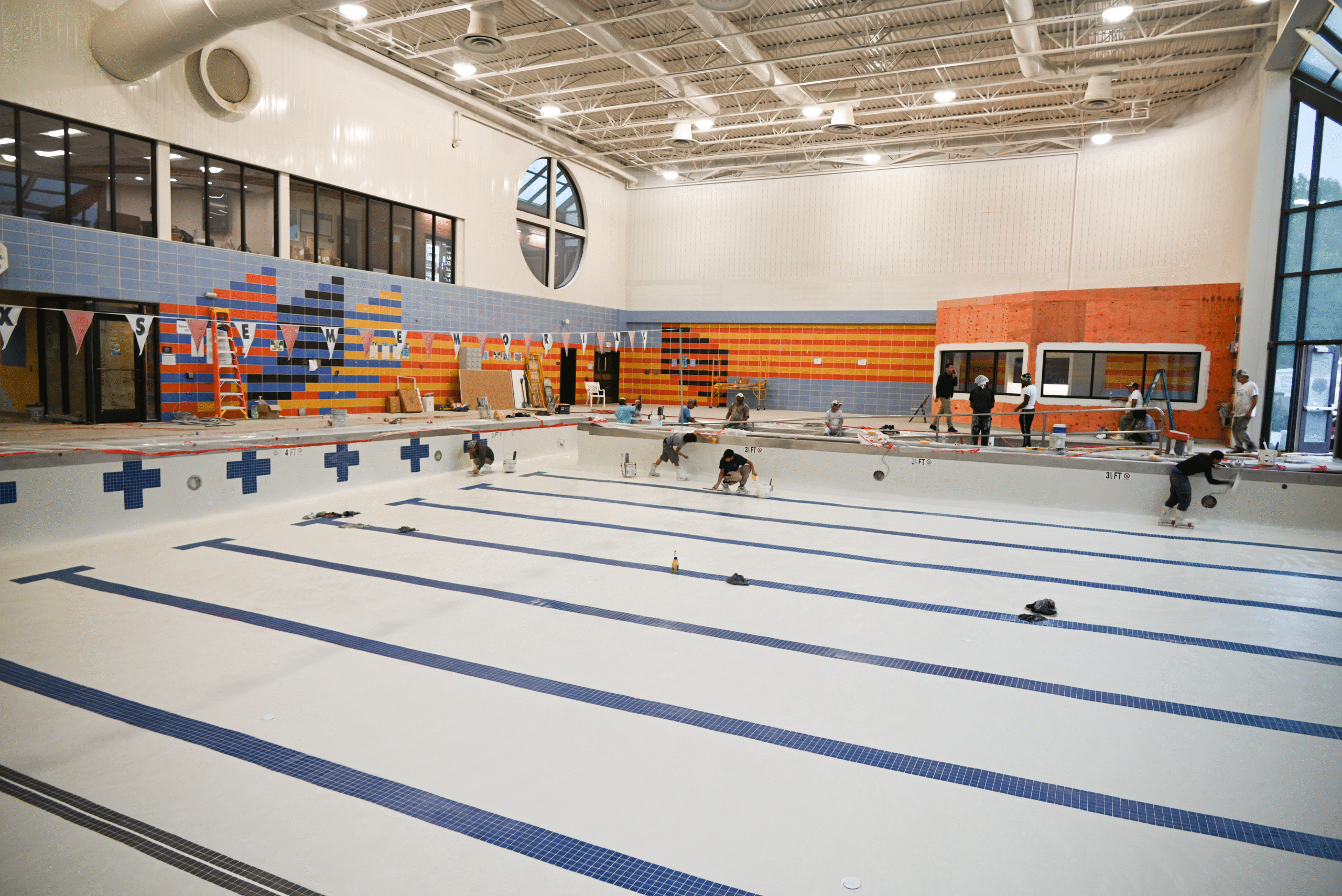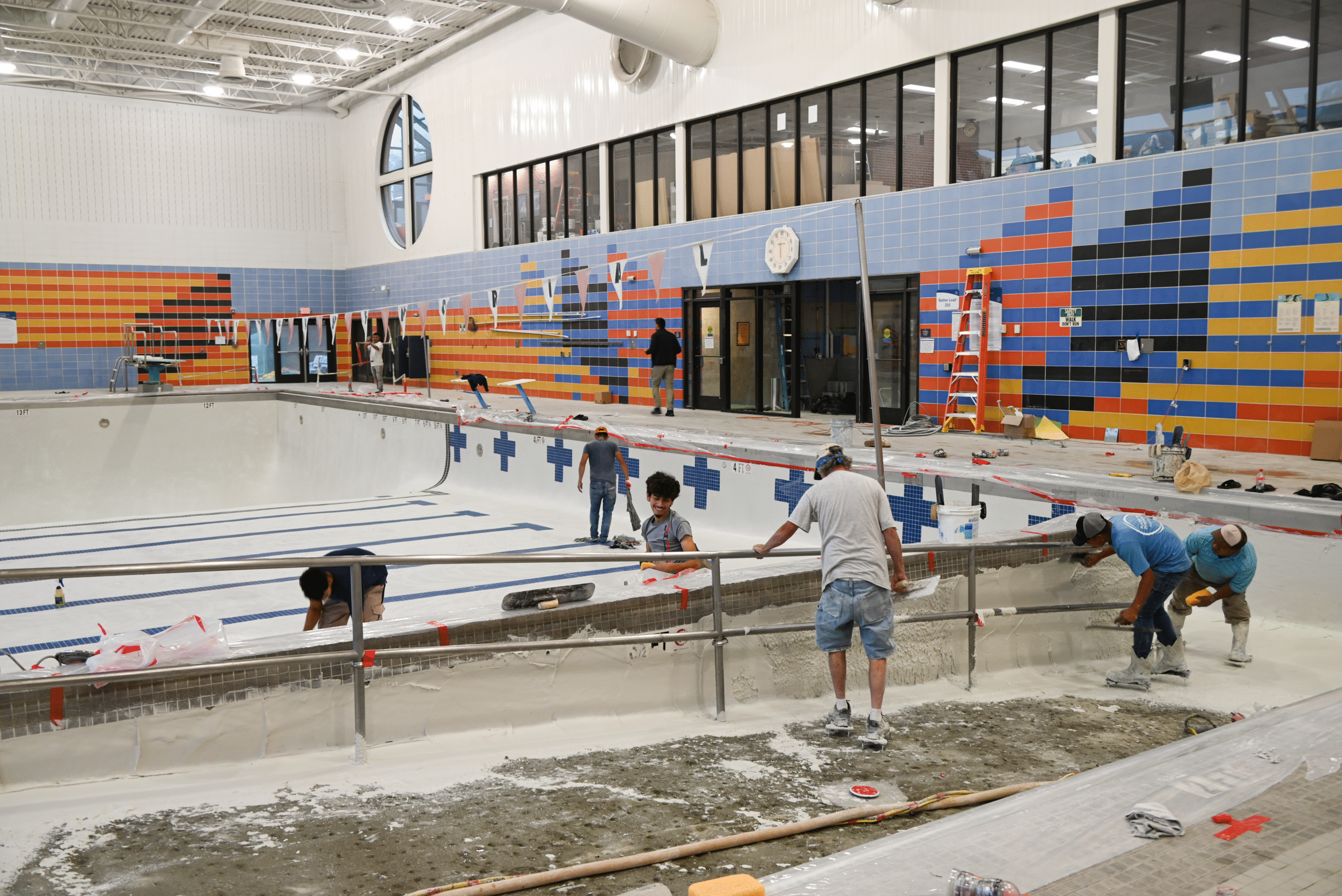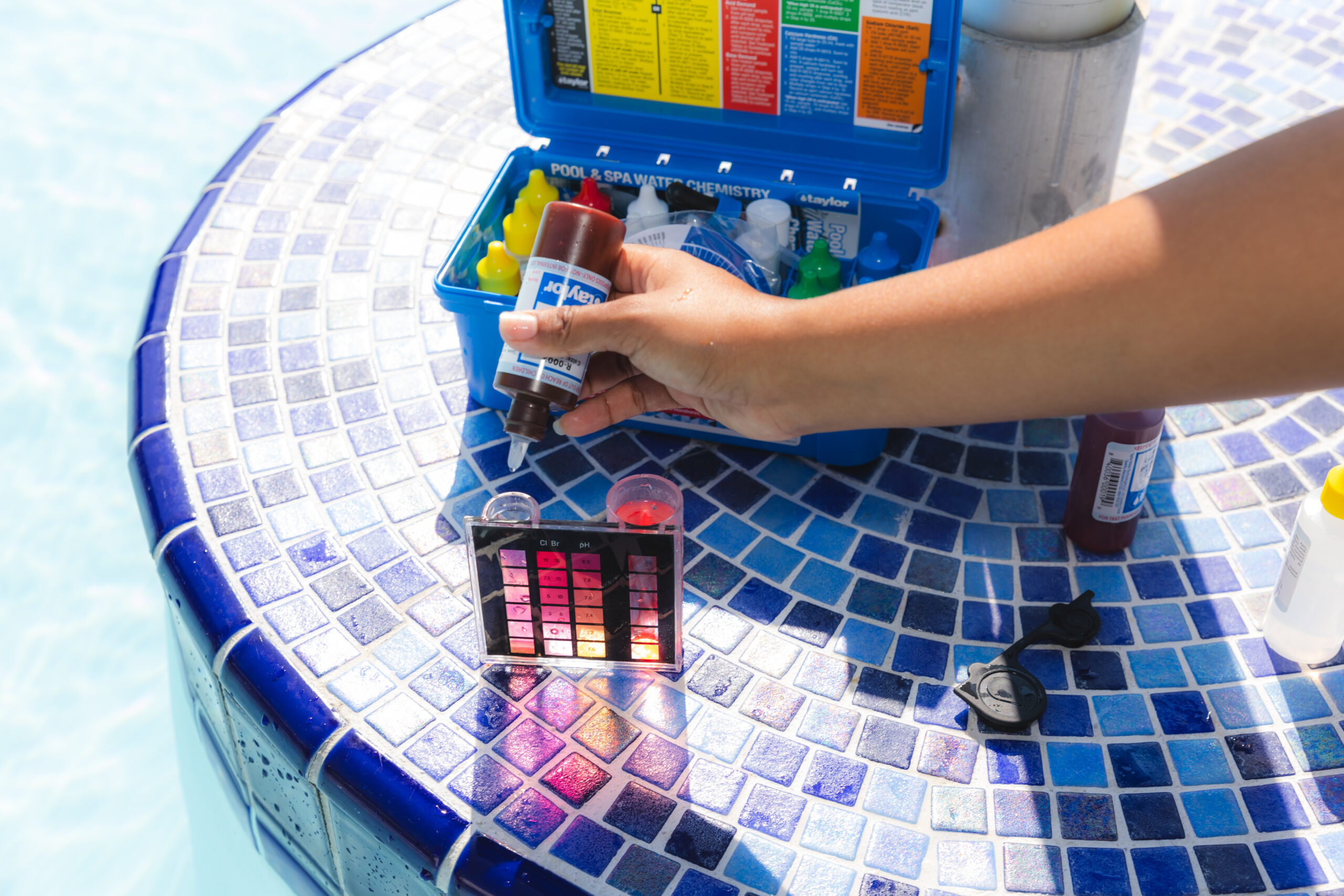
Comprehensive Guide for Property Managers and Board Members
This guide helps property managers and board members ensure safe, enjoyable pool operations by covering routine maintenance and repairs, lifeguard recruitment and training, and end-of-season inspections and planning.
Pool Repairs: Timely Interventions for Longevity
-
Leak Detection and Repair
- Regularly inspect the pool structure, plumbing, and fittings for leaks.
- Invest in leak detection technology to identify hidden leaks.
- Promptly repair any identified leaks to prevent water loss and structural damage.
-
Equipment, Tile and Surface Maintenance
- Monitor the pool’s tiles and surfaces for cracks, chips, or other damage.
- Schedule regular cleaning and maintenance to prevent the growth of algae and bacteria.
- Repair or replace damaged tiles promptly to maintain aesthetic appeal and safety.

Hiring and Training Lifeguards: Ensuring Pool Safety
Pool safety hinges on vigilant, competent lifeguards; property managers and boards must lead hiring and training.
-
Hiring Practices & Training Programs:
- Collaborate with reputable pool company to source qualified candidates.
- Conduct thorough interviews to assess communication skills, situational awareness, and rescue abilities.
- Verify certifications and ensure candidates meet all legal requirements.
- Invests in comprehensive lifeguard training programs that cover water rescue techniques, CPR, and first aid.
- Conducts regular in-service training sessions to reinforce skills and introduce new safety protocols.
- Promotes ongoing professional development for lifeguards to stay abreast of industry best practices.
-
Agree on Emergency Response Protocols with your pool company that:
- Establishes clear and concise emergency response protocols.
- Conducts regular drills to ensure lifeguards are well-prepared for various scenarios.
- Collaborates with local emergency services for joint training exercises.
Addressing Large Pool Repairs: A Strategic Approach
-
Conduct Comprehensive Assessments:
- Engage professional pool contractors to conduct thorough assessments of the repair needs.
- Obtain multiple quotes to ensure cost competitiveness and explore financing options if necessary.
- Prioritize repairs based on urgency and potential impact on pool operations.
-
Communication, Scheduling and Execution:
- Maintain open lines of communication with residents, informing them of the repair plans and timelines.
- Clearly communicate any temporary closures or disruptions to pool access.
- Provide regular updates on the progress of repairs to manage expectations.
- Develop a detailed project schedule that minimizes downtime and inconvenience.
- Consider completing major repairs during off-peak seasons to minimize disruption.
- Work closely with the chosen contractor to ensure timely and high-quality execution.

Inspecting the Pool at the End of the Season
The end of the swimming season is an opportune time to conduct a comprehensive inspection and plan for future improvements.
-
Draining and Cleaning, Structural and Equipment Inspection:
- Drain the pool for a thorough inspection of the basin and surrounding areas. Conduct a detailed cleaning to remove any debris or contaminants.
- Conduct a detailed cleaning to remove any debris or contaminants.
- Engage professionals to inspect the pool structure for any signs of wear or damage.
- Evaluate the condition of equipment and identify any components requiring replacement or upgrading.
- Review maintenance logs to identify recurring issues and address them proactively.
- Analyze water quality data to assess the effectiveness of chemical treatments.
-
Community Feedback and Strategic Planning for the Next Season:
- Develop a strategic plan for pool improvements and upgrades based on the inspection findings.
- Allocate budgetary resources for planned enhancements.
- Communicate the upcoming improvements to residents to build anticipation.
Conclusion
Effective pool maintenance and operations require a proactive and strategic approach. Property managers and the Board of Directors play a critical role in ensuring the longevity, safety, and enjoyment of the pool for all residents. By addressing repairs promptly, hiring a reputable pool company, and implementing strategic plans for large repairs and seasonal inspections, communities can create a thriving and safe aquatic environment that enhances the overall quality of life for residents.
